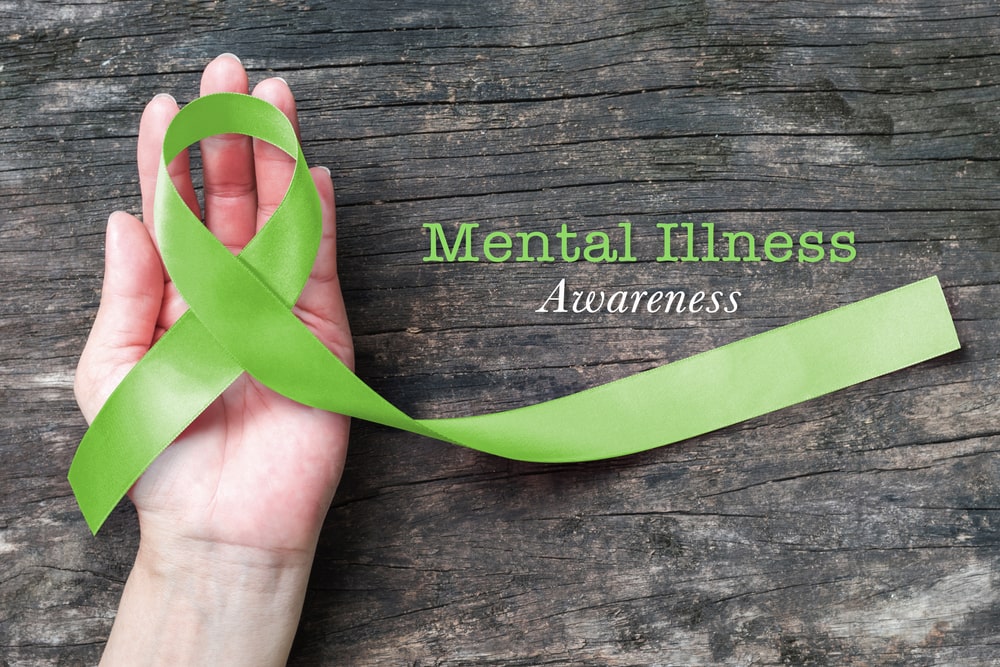
So many of us know someone who is struggling with their mental health. It can strike fathers, mothers, siblings, grandparents, friends, classmates, and co-workers. And oftentimes, the struggle is hidden from view and whispered over rather than treated with the compassion and care it deserves.
According to the National Alliance on Mental Illness (NAMI), approximately 1 in 5 U.S. adults experiences mental illness in a given year. That’s 46.6 million Americans. And each year, more than 8 million deaths worldwide are attributed to a mental illness, including many due to suicide or overdose. NAMI research also shows that 46% of people who die by suicide had a known mental health condition. These numbers tell us that millions of people worldwide struggle with mental health on a daily basis. The battle is real, and its reach is vast.
The question is: What can we do as individuals to help the people closest to us who are suffering from some form of mental illness live long and healthy lives? First, let’s go over the most common types of mental illness, and then we’ll discuss some practical ways you can help those around you who might suffer from a mental illness.

Five Categories of Mental Health Disorders
The term “mental illness” or “mental health disorder” refers to any disorder that affects mood, thinking, or behavior. The five major categories of mental illness are: anxiety disorders, mood disorders, schizophrenia and other psychoses, dementia, and eating disorders. Let’s take a closer look at each type.
Anxiety Disorders
Anxiety disorders affect approximately 40 million American adults. Typically, people suffering from an anxiety disorder experience distressing and frequent times of fear and apprehension. If not treated, the symptoms can worsen and begin to include panic attacks, physical symptoms, nightmares, and obsessive thoughts. Some common anxiety disorders are: panic disorder, OCD, PTSD, social anxiety disorder, and generalized anxiety disorder.
Mood Disorders
The two most common mood disorders are depression and bipolar affective disorder. Depression affects an estimated 300 million people worldwide and is characterized by loss of interest, sadness, feelings of guilt, low self-worth, difficulty falling asleep, exhaustion, and a lack of concentration. Depression can be long-lasting or recurring, leading to significant interference with a person’s ability to function on a daily basis.
Bipolar disorder, on the other hand, is marked by mood swings from extreme highs (elevated mood, hyperactivity, inflated self-esteem) to extreme lows (depression, sadness, hopelessness, lethargy), occasionally with a stabilized mood in between. Affecting more than 60 million people worldwide, the cause of bipolar affective disorder is not entirely known.

Schizophrenia and Other Psychoses
Psychoses, including schizophrenia, are a much more severe form of mental illness and impact about 23 million people worldwide. Pychosis disorders are characterized by distortions in thinking, perception, emotions, sense of self, and behavior. Often, people suffering from psychosis experience hallucinations, making normal life difficult. There is a strong stigma associated with type of mental illness, so many people don’t get the medical help and social support they need to heal.
Dementia
Though we don’t always group it with the others, dementia is a form of mental illness. It is generally chronic or progressive and often refers to the deterioration of memory, comprehension, calculation, and language, as well as emotional and social control. Dementia is caused by a variety of diseases that impact the brain, and while we don’t currently have a cure, there are treatments available to ease the confusion of the sufferer.
Eating Disorders
For many, eating disorders can be a life-threatening condition if left untreated. While there are many variations, they all involve obsessive behavior around food, weight, and body image. Usually, the behavior starts out relatively harmless but can escalate to the point where the body is unhealthy, causing damage that can lead to an early death. The three most common types of eating disorders are: anorexia nervosa, bulimia nervosa, and binge-eating disorder.

Now that we have a better understanding of mental health disorders and what illnesses fall into them, let’s talk about how you can support those around you who are struggling with one or more of these health problems.
Eight Simple but Practical Support Tips
First, let’s acknowledge that relationships are hard, and when one person in the relationship is dealing with a mental health condition, it’s often harder to maintain a good relationship and positive interactions. So, when talking to friends or family who are dealing with mental health problems, try to focus on the opportunity to learn and provide support. The more you talk to others about a mental health issue they are dealing with, the more you can recognize symptoms and offer greater understanding and compassion.
1. Educate Yourself and Others Who Want to Learn
Even though you may not experience a mental health disorder yourself, you can seek to understand what others are dealing with. By getting to the truth of the difficulties of a particular mental health disorder, you can offer a greater degree of compassion and even locate mental health resources in your area that may provide treatment and medical care. The more you learn, the better. And if you can share what you’ve learned with others, more and more people will feel empowered to support their friends and loved ones who are dealing with mental illness.

2. Listen to Understand
So often, we only listen half-heartedly. While we hear the words, we are actually formulating our own response. When we do this, the other person often feels like you aren’t hearing them or trying to understand. When talking to a person who is struggling with a mental health issue, listen carefully. You don’t have to agree with them – the point is to understand how they feel and respect their feelings. It’s not a debate; it’s simply a dialogue. Build trust and rapport. Treat them with kindness and let them share as little or as much as they want. It’s not about fixing them – it’s making them feel heard.
3. Let Them Share Without Fear of Judgment
Being open and vulnerable with others is hard, especially if the trust between people isn’t strong. In order to support someone struggling with their mental health, you need to create a safe space for them. Don’t try to diagnose them or question their feelings. Ask them open-ended questions so that you encourage a full response rather than a simple “yes” or “no.” Look for common ground, and if you find yourself feeling defensive, gracefully end the conversation until you can talk in a calm, compassionate way. The more they trust you, the more they will open up and let you support them.

4. Avoid Belittling Their Experience or Alienating Them
Sometimes, we simply don’t think before we speak, and usually, that’s when we hurt our relationships with others. Careless words cut deep. So, make sure that you don’t blame them or raise your voice. Allow them to speak. Don’t make the conversation about you and your struggles – focus on them. Avoid sarcasm, condescension, or jokes about their condition. Instead, offer kindness and compassion.
5. Ask How You Can Help
While your friend or loved one may not know how you can help them, the act of asking the question lets them know that you want to be helpful and supportive. If they do give you ways to help them along the journey, only take on what you can handle. You’re only one person, and you may need to enlist others to help, particularly those who also love the mentally ill person. Also, don’t be afraid to ask the question more than once. As time goes on, needs may change, so it’s good to create a habit of asking how you can help every so often.

6. Encourage Self-Care
For anyone who is dealing with a physically, mentally, or emotionally distressing situation, self-care is especially important. Encourage your friend or loved one to exercise regularly, eat healthy foods, and do things that bring them joy and help reduce stress. The more they care for themselves and are aware of their current mood, the better.
7. Intentionally Include Them in Your Life
For those who are suffering from mental health disorders, being included can help them feel wanted and loved. If they say no, then they say no, but continue to invite them. There may be moments when the situation feels tense or uncertain, and that’s okay. Supporting someone through a mental illness is not easy, and you may find that you can only handle small doses of involvement. That’s okay, too. Help your loved one find a community of support, not just a person of support.

8. Know your Own Limits
As much as you may want to help, there are some things that are beyond you or that you just don’t have the emotional fuel to deal with. And that’s okay. It’s important to know when you are able to help and when you aren’t. When the person you love is dealing with psychosis or is feeling suicidal, get them to the hospital as soon as possible. The doctors there can help you understand which next steps to take.
Also, don’t be afraid to seek counseling yourself, either with a counselor or a support group. If you have been dealing with a loved one’s mental illness for a long period of time, lots of negative emotions can settle in, including stress, worry, anger, and anxiety. Having someone outside your family to talk to about the situation can give you some much-needed clarity, objectivity, and a safe place to deal with your own emotions. The healthier you are, the more effectively and compassionately you can enter into demanding situations.




